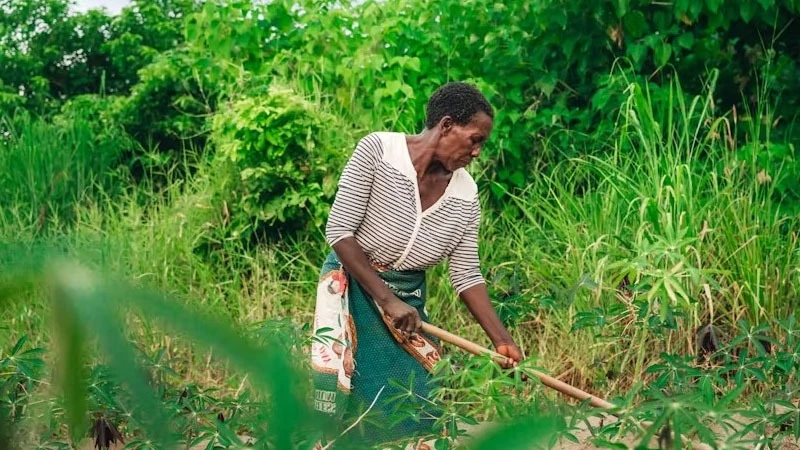Path to healthier and economically stable individuals begins with quality education

IT is alarming that some of the most industrious people in agriculture, the backbone of the country’s economy, are threatened by malnutrition and poverty. Agriculture accounts for about 25 percent of the country's total Gross Domestic Product (GDP). The sector supports both national income and overall economic growth.
The presence of malnutrition and poverty jeopardizes future productivity, as unhealthy individuals struggle to work consistently while others may be discouraged, seeing little improvement in their living standards despite their efforts.
People are more motivated to work when their efforts leads to tangible benefits, being in agriculture or any other sectors of the economy.
The challenge is now how to utilize the available resources effectively for individual and community betterment. Having fluent resources is not enough if people do not know how to use them to improve their welfare.
It is frustrating to see hardworking farmers fail to achieve good health or economic development despite their dedicated efforts. It is demoralizing to be constantly busy with little to show for it.
Surprisingly, the assertion by nutrition experts that all the necessary nutrients are within reach, yet malnutrition still affects many. The issue isn't access to food but rather knowledge of how to use it effectively, highlighting the direct relationship between education and health.
Farmers also face anxiety about where to sell their produce, exacerbating the challenges they already face. The remedy to malnutrition and lack of markets lies in education. Government and stakeholders, primarily through the media, are trying to address these issues, but the sooner, the better.
When is the right time? During school; if students are educated on connections between agriculture, nutrition, and marketing, they will be better equipped to utilize agricultural produce efficiently—helping to combat malnutrition and sell surplus crops for economic gain. The ability to analyze and apply knowledge is crucial to development.
Health and the economy are closely linked, making it essential for the government to design a curriculum that focuses on key areas, including:
Environmental conservation and disease prevention; harmful practices like deforestation for charcoal contribute to air pollution, global warming, and agricultural decline due to unreliable rainfall, ultimately hindering economic development. Students should be taught to assess the economic value of health and understand how disease prevention is critical to sustaining productivity and economic growth. A healthy workforce is essential for development.
Market awareness for agricultural produce; farmers often suffer losses due to a lack of market access. Educating students on how to identify and assess markets for agricultural goods could help address the challenges farmers face. Teaching students about key buyers and market trends would empower them to predict future opportunities and challenges, allowing them to make the most of agricultural production.
A health- and economy-focused education system would benefit the country in several ways:
Increase in GDP; healthy individuals who can work efficiently and consistently contribute to GDP growth. Additionally, those who sell surplus goods bring in foreign currency, fueling further development.
Lower health expenditures; when citizens prevent disease, the government can allocate resources previously spent on healthcare toward other developmental projects.
Higher life expectancy; longer, healthier lives mean a more productive workforce and a lower dependency ratio, which is beneficial to the economy.
The government spends significant resources addressing problems that could have been mitigated early on. As the saying goes, prevention is better than cure. It's unacceptable for issues like malnutrition to persist in a country with such vast arable land capable of producing a balanced diet.
Some scholars have labeled African countries, including Tanzania, as poverty-stricken. This is mainly due to the lack of initiative in utilizing our abundant arable land for economic growth. It’s time to redesign our education system to ensure the maximum use of our resources for national development.
Mental liberation, the ultimate goal of education, will be achieved when learners can connect related aspects—like agriculture, nutrition, and marketing. The government, in collaboration with stakeholders, must strive to implement an education system that combats malnutrition and poverty. Positive change starts with education.
The author is a teacher based in Moshi. He can be reached at [email protected]
Top Headlines
© 2024 IPPMEDIA.COM. ALL RIGHTS RESERVED

























